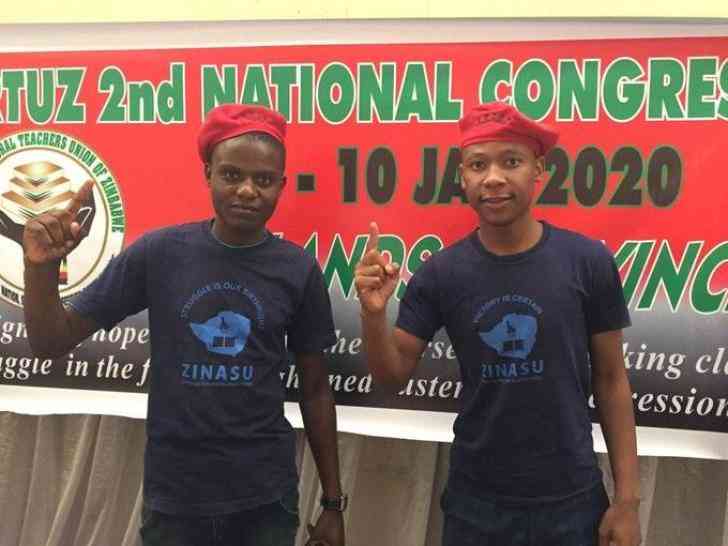
In July, and the beginning of August 2024, human rights regression largely at the hands of state security were documented.
The violations emanated from the government of Zimbabwe’s attempt to unjustly silence voices of dissent ahead of the Sadc summit in August.
Human rights defenders and pro-democracy activists were placed at the centre of surveillance and deliberately targeted for arbitrary and illegal arrests, torture and police brutality.
In other incidents, the right to personal security was gravely disregarded as victims were brutally assaulted as well as denied their rights and freedoms of assembly and association.
The incidents are a show of how the government has been in unprovoked panic mode, fearing the citizens would exercise their constitutional right to protest during the impending Sadc summit, further causing a regression in the promotion and respect of human rights.
In Mutasa District, three Zimbabwe Peace Project (ZPP) staff and community mobilisers were illegally detained by Central Intelligence Organisation operatives, interrogated and brutally assaulted.
The victims were tortured for more than two hours before being released with no formal charge.
A series of targeted attacks and arrests on human rights and citizens were also recorded.
- Letters: PWDs remain susceptible to abuse
- Political violence escalating: Report
- ‘ED fuelling hate speech’
- Letters: Human rights violations on the increase in Zimbabwe
Keep Reading
Forty four students who are members of the Zimbabwe Students Union were arrested and compelled to pay fines, admitting to disorderly conduct.
The president of the student’s union was twice arrested in July and on August 2, slapped with separate charges and released at the intervention of the Zimbabwe Lawyers for Human Rights.
The sickly trend, therefore, suggests that the arrests have been targetedat either deterring human rights defenders in mobilising or participating in any potential protests.
However, the use of force by state security agents is unjustified, and unconstitutional.
This calls for the government to revisit its commitment to upholding the human rights values and principles.
If unresolved, the continued attacks on human rights defenders including staff members of civil society organisations and other political activists.
The widespread abuses are happening at a time when dozens of opposition members have been languishing in prison for more than 50 days following their arrest on June 16 at a private residence in Harare.
Among the accused, now known as the Avondale78. ZPP is concerned that during this period, community based human rights activists might suffer the brunt of the state’s intimidation and harassment as they often have more contact with communities on a day to day basis, further precluding their right to protect and promote human rights accountability.
For instance, two male human rights activists residing in Kambuzuma and Epworth have each received calls from unknown numbers inquiring about their activities before being warned with threats of violence and abductions.
The ZPP is greatly concerned with the conduct of the government and its state security agents on the abuse of human rights and urges the Zimbabwe Human Rights Commission to fulfil its promises and mandate to protect human rights in the face of widespread violations.
ZPP further urges the Parliament to clarify on the mandate and operations of the National Peace and Reconciliation Commission.
The recent events call for an investigation into all human rights abuses, especially at the hands of the state security forces and the subsequent delivery of justice to all victims.
ZPP recommends that the Independent Complaints Commission must be operationalised in order to seriously investigate and prosecute all forces involved in the persecution of citizens during this period.
Meanwhile, in 17 recorded incidents, the fundamental freedoms of assembly and association and political rights were violated as many citizens were forced to attend and assume leadership in the ruling party’s ongoing cell-restructuring exercise.
The recruitment and restructuring exercise is Zanu PF’s internal political activity, hence should not be forced upon citizens who either do not belong to the party or are unwilling to participate in its activities.
Reports documented that the affected citizens are largely from rural areas.
The calls to attend and join the ruling party’s local structures were accompanied by threats, intimidation and harassment.
In Bindura South, village heads were at the forefront of the party’s community outreach programme compelling people to attend without fail.
In Nekati, village headman Simbarashe Zvirime instructed his subjects that failure to attend would demonstrate that one is affiliated to the opposition CCC.
Such identity ascriptions are often regarded seriously hence provoke fear and forced compliance among citizens.
At a time when more than seven million people face hunger, the ruling party’s officials have also been threatening withhoding of food aid and agricultural inputs from non-party members hence forcing people to join its structures in order to be considered as bonafide beneficiaries.
Some of the meetings, such as in Kotwa Ward 10 one, were convened on the pretence that they would be about food distribution only for citizens to be bombarded with party slogans and political agenda.
Such forced participation in political activities violate both the political rights and freedoms of association and assembly as enshrined in respective sections 67 and 58 of the Constitution of Zimbabwe.
The party’s conduct has also severely affected social cohesion and adherence to constitutionalism as some traditional leaders are also coerced to participate and lead in political activities.
In Mazowe North, Ward 3 of Chiweshe rural, the Zanu PF district coordinating committee (DCC) leaders forcefully appointed village heads as ruling party cell-chairpersons.
This is in direct contravention of Section 281:2(a) of the constitution of Zimbabwe,which stipulates that traditional leaders must not be members of any political party or in any way participate in partisan politics.
This further and in long term affects their conduct and affects their ability to ‘treat all persons equally and fairly’ (Sec.281:1(c) as well as fairly executing their duties, which include maintaining and promoting peace.










